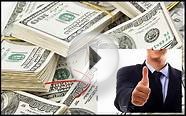
When you need to borrow money to cover an expense, you might consider either a credit card or personal loan. Deciding which is better depends on your situation. Credit cards are ideal for short-term balances that you can pay off each month, while personal loans are for medium- or long-term debt.
Credit cards vs. personal loans
Credit cards are one of the most expensive forms of financing, with interest rates in the double digits. On your credit card’s payment due date, you’re obligated to make a minimum monthly payment — generally around 1% to 3% of the balance — but you’ll need to pay it off in full to avoid accruing interest. Interest is calculated based on the average daily balance during the month, not the ending balance.
Credit card debt is “revolving” debt. You have a limit on how much debt you can have on the card; the amount of credit you have available from month to month depends on how much you spend and how much you repay.
As a general rule, credit cards are unsecured, which means they aren’t backed by collateral. Personal loans may be either secured by an asset or unsecured, but unsecured loans come with much higher interest rates.
Personal loans, whether secured or unsecured, often have lower interest rates than credit cards, especially if you have good credit. Unlike with credit cards, a personal loan gives you a lump sum, and you make equal payments over a specified time period until the loan is paid off — usually two to five years. Your loan payments will include principal and interest.
When you should use a credit card
Because of their high interest rates, credit cards are best reserved for short-term financing. Use a credit card only for purchases that you’ll be able to pay off by the due date, like daily expenses or monthly bills.
You could use cash or your debit card for these same purchases, but credit cards have benefits outside of free short-term financing. Many cards come with cash or travel rewards — typically ranging from 1% to 2% of what you spend — as well as certain perks you won’t get with cash or debit.
All that said, there’s an exception to the rule of paying off your balance in full each month. If you get a 0% interest credit card, you can take your time paying off purchases. Still, you should have a plan to pay off the entire balance before the introductory 0% APR period ends, because you could get hit with interest on your remaining balance, as well as retroactive interest on your initial balance.
Interesting facts
Additional information














